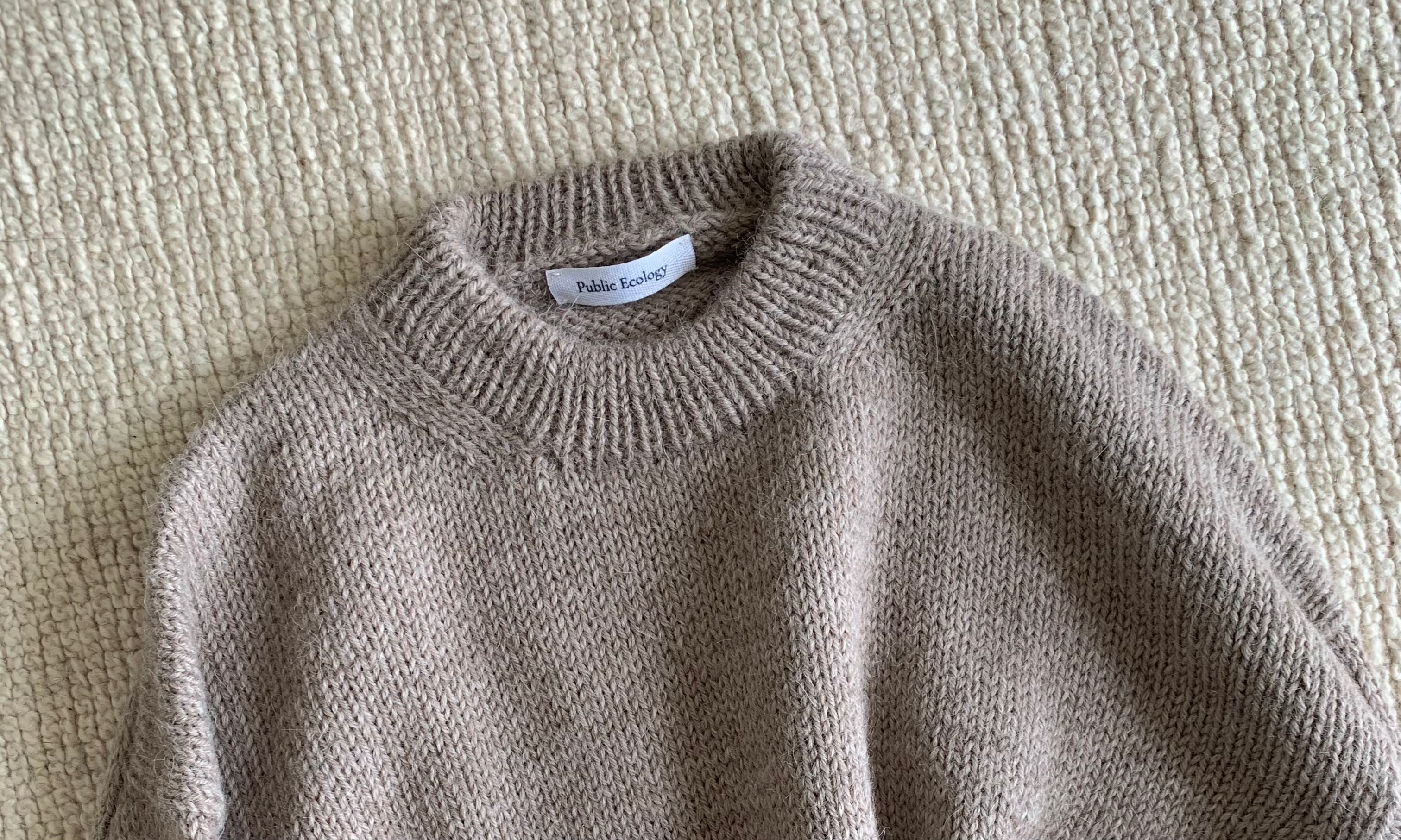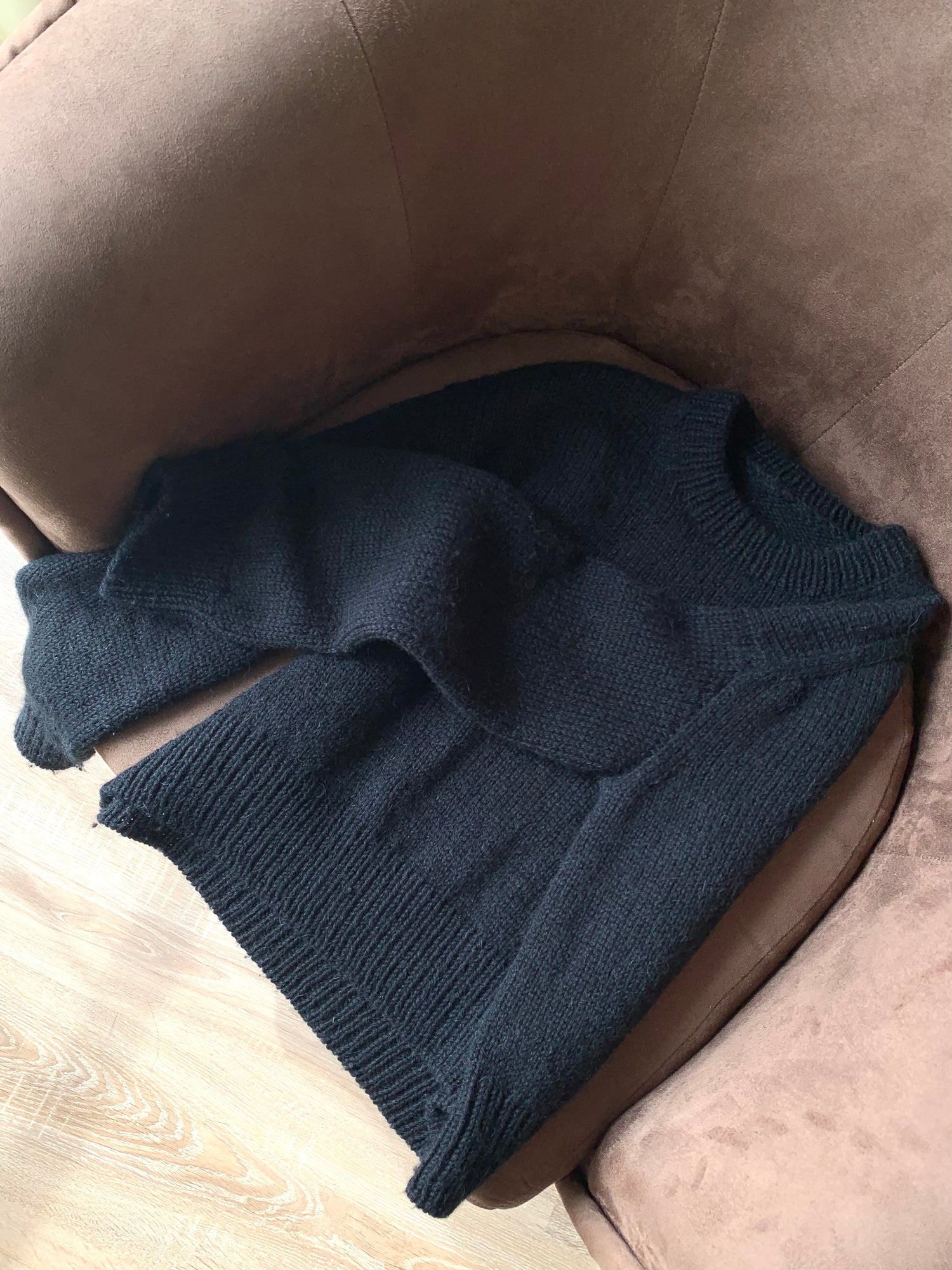
Sustainable Japandi Knitwear
Sustainable Japandi knitwear entirely hand knitted and made-to-order using only natural materials, bringing back the precious art of handcrafted fashion with luxurious high quality materials and minimalistic patterns while promoting ethical and environmental responsibility.
“Japandi” style is the innate love of nature and historic “less-is-more” cultures that privilege minimalism and tranquility in Scandinavia and Japan married harmoniously.
Handcrafted with love in Helsinki.
New Designs
-
Natsumi Socks
Regular price €45,00 EURRegular priceUnit price / per -
Megumi Sweater
Regular price €276,00 EURRegular priceUnit price / per -
Koharu Sweater
Regular price €325,00 EURRegular priceUnit price / per
Select a Design and Have It Crafted in Your Favourite Colour
-
1. Select Your Piece
Choose your desired knitwear and select the ‘Customise’ option under colour choices, then place an order.
-
2. Curate Your Colour
Once your order is placed, I will reach out to guide you through the range of colours available for your piece, ensuring a palette that perfectly reflects your style.
-
3. The Art of Handcraft Begins
With colours decided, I will source the yarns from a local boutique in Helsinki and begin handcrafting your one-of-a-kind piece.

The Serenity: Alpaca Collection
A collection of knitwear crafted from a sumptuous alpaca blend yarn, chosen for its unparalleled warmth, breathability, and feather-light feel. Each piece embodies the essence of quiet luxury—where artisanal craftsmanship meets timeless design.
Capsule Collection
-
Kureha Sweater
Regular price €276,00 EURRegular priceUnit price / per -
Chihiro Cardigan
Regular price €395,00 EURRegular priceUnit price / per -
Reina Sweater
Regular price €395,00 EURRegular priceUnit price / per -
Hinata Top
Regular price €162,00 EURRegular priceUnit price / per -
Megumi Sweater
Regular price €276,00 EURRegular priceUnit price / per -
Koharu Sweater
Regular price €325,00 EURRegular priceUnit price / per
Collections
Hand-knitted knitwear is a more ecological and ethical option than mass-produced knitwear.
Reduces Overproduction & Waste
Fast fashion brands produce knitwear in bulk, often leading to excess inventory that ends up in landfills. In 2020, textile products consumed in the EU generated 121 million tonnes of greenhouse gas emissions.
Hand knitting and made-to-order model allow me to make only what I need, after an order comes in, reducing unnecessary waste.
Less Energy & Carbon Footprint
Industrial knitting machines and factories consume large amounts of energy, contributing to greenhouse gas emissions. As a result, the textile industry is a significant contributor to global emissions. In 2020, textile purchases in the EU generated about 270 kg of CO₂ emissions per person.
Knitting at home eliminates the carbon footprint associated with manufacturing and global transportation.
Eco-Friendly Material Choices
Mass-produced knitwear items often contain synthetic fibers like polyester and acrylic, which is made from petroleum, non-biodegradable, and shed microplastics into waterways when washed.
I use only natural, biodegradable materials suchs wool, alpaca, and silk mohair for my knitwear. Currently, 28% of my pieces are crafted using yarns certified by the Responsible Wool Standard (RWS) and STANDARD 100 by OEKO-TEX®.
Better Quality & Longevity
Handmade knitwear is often higher quality than store-bought fast fashion, which is designed for short-term wear.
Handmade garments are typically crafted with greater attention to detail and quality, resulting in longer-lasting items that reduce the need for frequent replacements. Extending the lifespan of a garment by nine months can reduce its environmental impact by 20–30%.
Supports Ethical & Local Businesses
Mass-produced knitwear is often manufactured in regions with low labor costs, where workers may face poor working conditions and exploitation.
By knitting myself and sourcing yarn from ethical and local shops in Helsinki, I ensure responsible production practices and support my local community. This also eliminates the carbon emissions associated with online purchases and shipping.
Encourages Slow Fashion & Mindful Consumption
The rise of fast fashion has led to increased consumption and waste, with Europeans discarding about 11 kg of textiles per person annually.
I believe having your clothing hand-knitted by someone fosters a deeper appreciation for the time and effort involved in garment creation and promote more mindful consumption. You might be more likely to take care of and repair a handmade item rather than discarding it.











